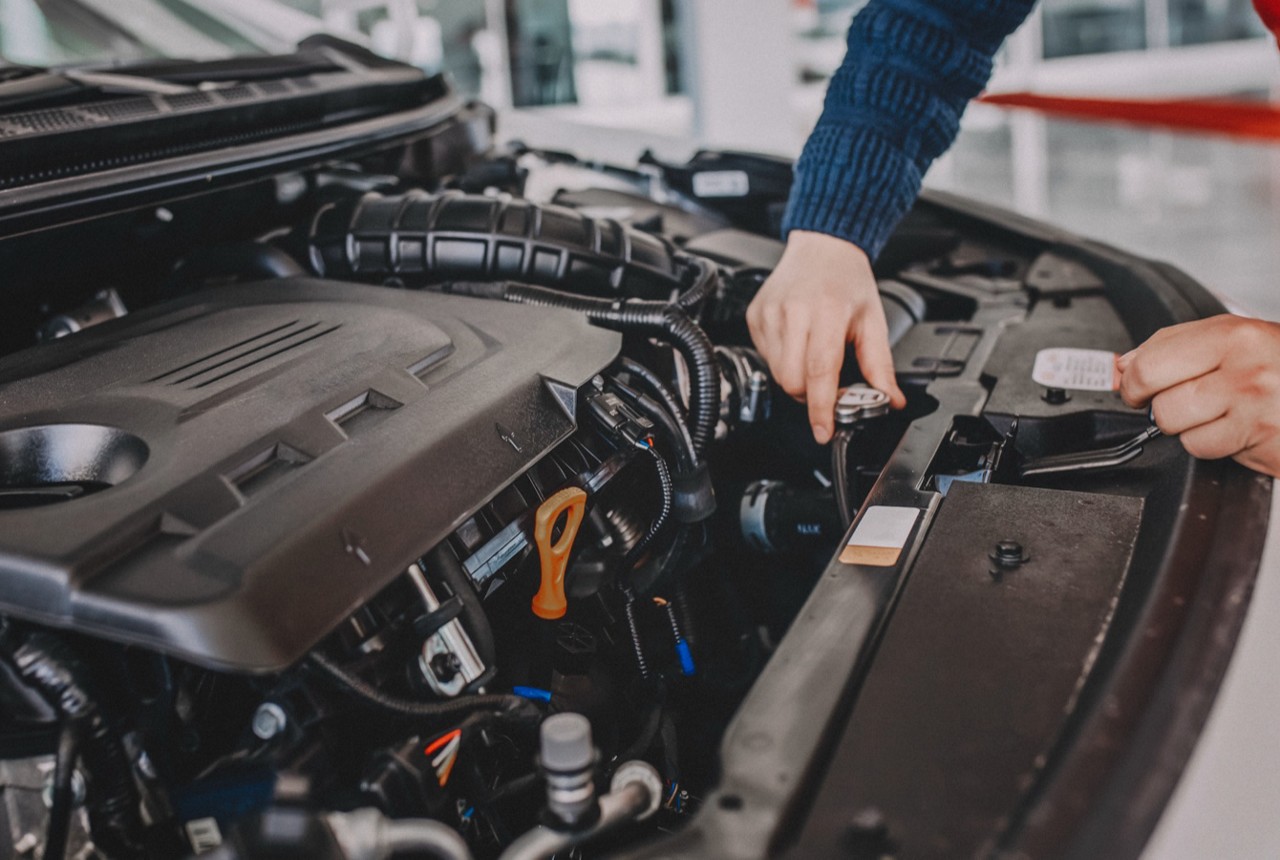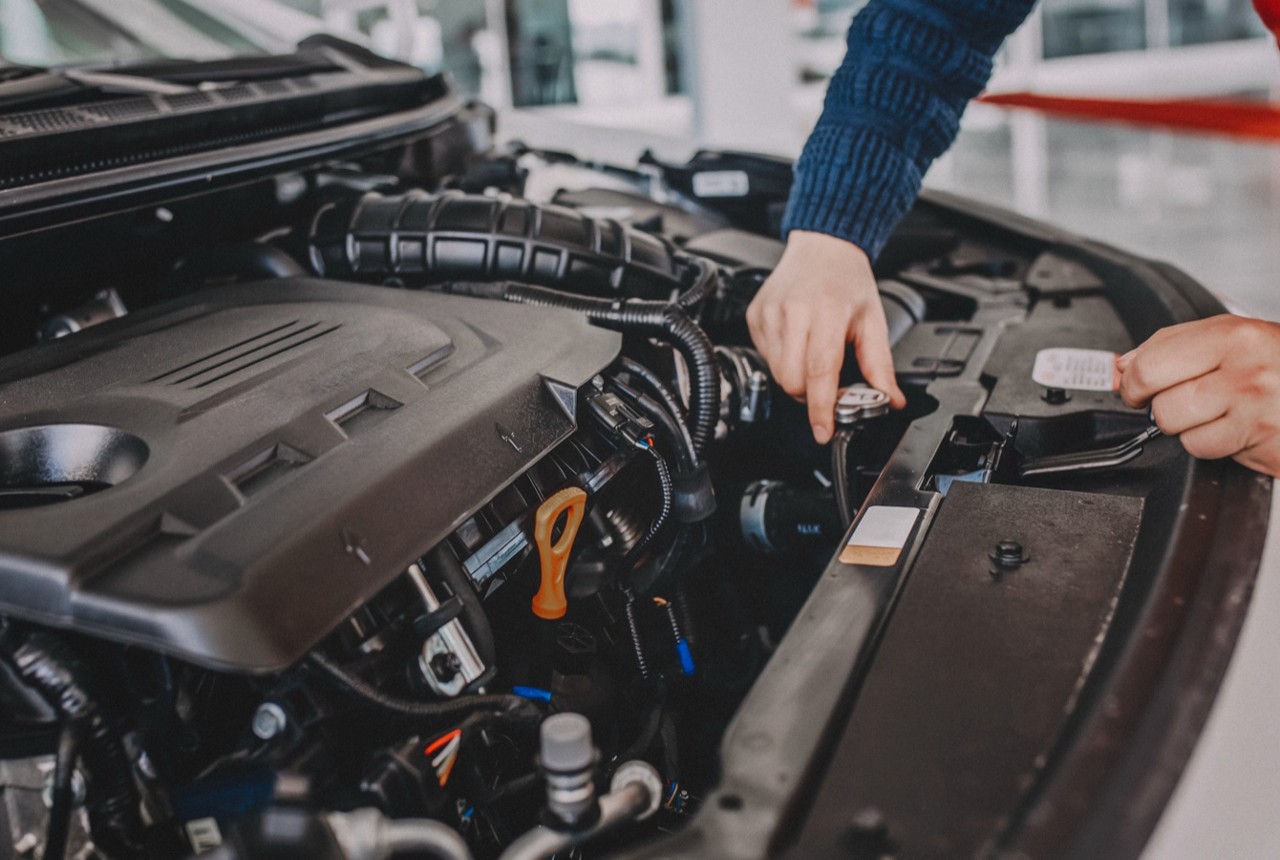What Coolant Does in Your Engine

Your vehicle’s engine generates a tremendous amount of heat and pressure. Coolant (also known as antifreeze) is a mixture of distilled water and ethylene or propylene glycol along with additives. The job of coolant is to remove the heat generated from the engine. Glycol prevents the water from freezing in the winter as well as to help raise the boiling point of the water. Additives in antifreeze also lubricate parts like the water pump and prevent scale and rust from forming inside the cooling system.
If your vehicle has a coolant leak, it can lead to engine problems. Learn how to recognize the signs of a coolant leak and what you should do if you have one.
Coolant Leak Symptoms

If the coolant level in your engine is low, it can overheat – no matter what the outside temperature is. If your vehicle’s engine is running too hot, it can not only affect your gas mileage and engine performance but can also lead to costly repairs. Knowing the signs of a coolant leak can help identify a problem before it causes bigger issues.
Green, Pink, Orange, Yellow or Blue Spots Under Your Vehicle
Manufacturers make antifreeze in different colors. If you discover a green, orange, blue, pink or yellow spot under your car, it could be coolant leaking from the radiator, hose, water pump or gasket/seal. To get a good look at what is leaking from your vehicle, put a large piece of paper under your vehicle overnight.
Your Nose
Your sense of smell may help you detect a coolant leak even if there are no signs of leakage under the car. The engine’s temperature may “burn off” coolant that is leaking. You may notice a sweet smell from under the hood after you shut the car off.
High Engine Temperature
Keep an eye on your vehicle’s temperature gauge or warning light. If the temperature gauge begins to rise, take steps to address the problem before it progresses. Also stay on the lookout for the temperature warning light, you may see that illuminate before noticing a rising temperature gauge.
Low Coolant Level
If you suspect that you have a coolant leak, check the antifreeze level in your vehicle. If it is low or if you’re adding coolant to your vehicle on a regular basis, there is a good chance you have a leak. Note: Because the cooling system contains hot liquid under pressure, be careful when removing the radiator cap. Allow some time for things to cool off before removing the radiator cap and use a rag over the cap to prevent steam burns. Remove the cap slowly to allow any pressure to escape.
Causes of Antifreeze Leaks
Learn what can cause a coolant leak in your vehicle. If you have an antifreeze leak, your trusted auto technician can pinpoint the source.
Hole in Radiator
Located at the front of the vehicle, the radiator takes a lot of abuse. A hole from a rock or other debris can cause coolant to leak. Many radiators have composite tanks that can crack or leak from the joint where they attach to the core.
Faulty Radiator Cap
The radiator cap seals in all the pressure of the cooling system. Over time, the seal can break down and allow antifreeze to leak. The radiator cap can be located on the radiator or plastic coolant tank.
Hose Leak
A leak in one of the hoses that circulates the coolant through the vehicle can cause antifreeze to leak.
Water Pump
The seal where the pump shaft passes through the pump body can leak antifreeze.
Engine Gaskets/Seals
These parts can leak due to engine overheating, wear, or lack of cooling system maintenance.
Can You Drive with a Coolant Leak?

If you suspect that your vehicle has a coolant leak, it’s time to make an appointment with your auto technician. A leak won’t fix itself and can get worse quickly; this can lead to further damage to your car’s engine. Don’t ignore the signs of a coolant leak and risk being stranded on the side of the road.
Learn more about Fel-Pro quality gaskets that are specifically designed for the repair environment, find your car part, or find where to buy your auto part today.
The content contained in this article is for informational purposes only and should not be used in lieu of seeking professional advice from a certified technician or mechanic. We encourage you to consult with a certified technician or mechanic if you have specific questions or concerns relating to any of the topics covered herein. Under no circumstances will we be liable for any loss or damage caused by your reliance on any content.
Other Parts For Your Vehicle
Fel-Pro® offers a wide variety of auto parts for all your vehicle needs.
Check them out today!